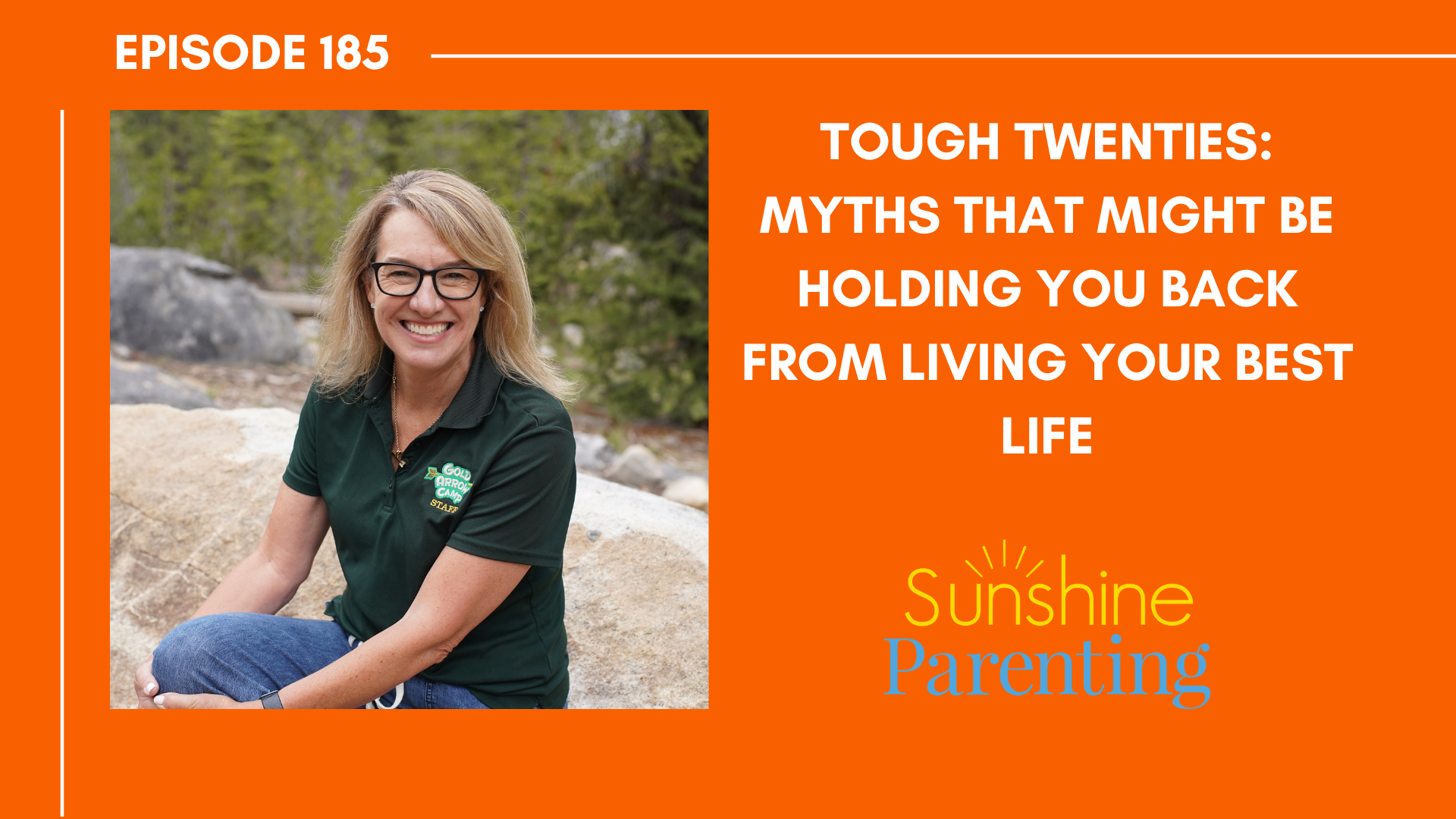
In the Tough Twenties series, I’m interviewing young adults, answering questions submitted by listeners, and sharing resources and tips related to thriving in young adulthood and beyond. Whether you’re an adolescent or a young adult in your twenties, or you’re parenting a young adult, I know you’ll be encouraged by this series.
In this episode, I share about some myths that can hold you back from living your best life. It’s easy to get caught up in the pressure to conform and meet expectations of others. We can find ourselves striving for success based on societal standards or seeking validation from those around us. To live our best lives, it’s essential to explore our unique strengths and follow our own path.
During this episode I share about five myths many adults base their lives on, truths that counter those myths, and what you can do now to start living your best life. It took me a long time to learn these lessons, and I really wish someone would have talked with me about them when I was launching into adulthood.
Myths that Might Be Holding You Back from Living Your Best Life
Everyone (or certain people) need to approve of our job/career for it to be “successful.”
Truth: Some of the older adults that you think of as being successful are not happy with their lives and regret not pursuing something they were really interested in but didn’t have the same level of prestige/income associated with it.
What to do: Chase your strengths/interests. Spend time learning about yourself and talk through ideas with a friend or trusted mentor.
Some tools you might use:
Enneagram
VIA Strengths
Four Tendencies
Gallup Strengths
We have to make really big changes in order to reach our goals.
Truth: The tiny, consistent habits are the way most people eventually reach their goals. This is true for both vocational goals and physical goals.
“Cramming on something for a couple of hours once in a while as just a slow, steady progression, a little at a time.
What to do: Break down an impossible-seeming goal and break it down into the tiniest step possible.
Ex: Read one page of a book about a topic you want to learn more about.
I need to start really big and do something huge for my first career-type job.
“I want to write a book.”
“I want to start a non-profit organization.”
What to do: Figure out what’s the first, very small step towards XYZ (starting a non-profit in a particular area).
Example first step: Do a Google search of the non-profit food providers in your area.
Example next step: Volunteer a few hours at one of the food providers.
Get an accountability partner!
Brainstorm together
Is this step small enough?
Circle back in a week and report on your first step, discuss your next step.
Once I _________, then I’ll be happy.
Truths:
We actually miss a lot of the great moments in life when we’re spending all of our thoughts on this thing out there in the future.
It does feel good to accomplish things, but sometimes we feel bad after we reach the goal.
“You’re gonna miss this” song (Trace Adkins)
What to do: Figure out your current “Once I…” statement that you’re believing in too much. What’s something you can replace that with? Like, what is it about your life right now that you’re really enjoying? What are you grateful for in this season?
I’ll get to ______ later, when I have more time.
Truth:
Regardless of life stage, your time will get filled by things you can’t control but there’s always some discretionary time. Sometimes we’re not aware of it, because we default to spending time doing things that don’t lead to better well-being.
What to do: Recognize that you have the same amount of time as everyone else. Figure out what you want to prioritize and schedule it in.
Cal Newport Deep Life Podcast – Zero Sum Time Budgeting.
One more idea: You can make time more meaningful and things more memorable by putting a little more effort into it.
Laura Vanderkam’s “Effortful Fun”
Power of Moments, Chip Heath & Dan Heath
In conclusion, discovering our unique strengths and path is essential for living a fulfilling and thriving life. It requires us to challenge the myth that we need others’ approval or validation for our choices. Instead, we must invest time and effort in self-discovery, exploring our interests, and understanding our strengths. By embracing our uniqueness and following our own path, we can find true happiness and fulfillment. Remember, success is not measured by societal standards but by the alignment between our passions, strengths, and purpose.
Get in touch:
Submit a comment about or an anonymous question for the series
